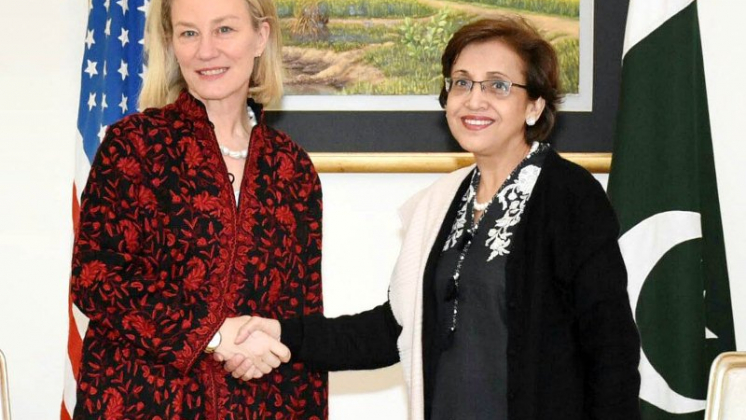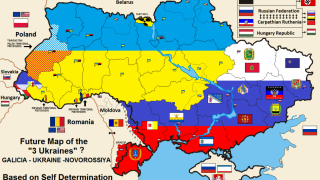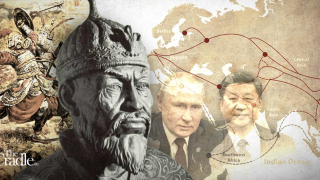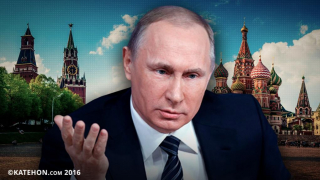Alice Wells’ crucial visit to Pakistan
24.01.2020
Acting US Assistant Secretary for South and Central Asia Alice Wells visited Pakistan on 19-22 January 2020, after India and Sri Lanka on her trip to South Asia. She met with Pakistani Officials at the Ministry of Foreign Affairs, Ministry of Interior and Ministry of Trade, Commerce, Industry, and Textile.
A broad range of issues was discussed at official meetings including bilateral relations, trade & Investment, Passports, and Visa issues, political and diplomatic issues, Afghan peace issues, regional and geopolitics, India and Kashmir issues. The official discussions were quite well as usual.
She also interacted with civil society. She has served in Pakistan two decades ago and understands Pakistani society quite well. She has many good friends in Pakistan and deep penetration into Pakistan society. She expressed her concerns on CPEC openly. She again blamed CPEC as a debt trap, expensive, lack of transparency, less beneficial to Pakistan, etc. Although all these questions have been clarified in detail many times already, from her anti-CPEC sentiments, it seems that she was planned on an anti-CPEC mission specifically.
Pakistan’s civil society responded precisely and conveyed a strong message that although Pakistan wants to restore its relations with the US, but keeping its national interests at prime and strategic interest with Russia and China intact.
China and Pakistan have been firmly committed to CPEC. It is a consensus-based decision, based on principles of mutual consultation and cooperation for shared benefits. Major progress has been achieved in the past 5 years, with 32 projects achieving early harvests. This has significantly improved local transportation infrastructure and power supply, created over 75,000 jobs directly and contributed one to two percent of the GDP growth in Pakistan. It shows that CPEC is playing an important role in boosting Pakistan's socio-economic development and improving people's livelihood.
Under the CPEC, during its planning or implementation, every project is mutually discussed, carefully studied and jointly implemented by both China and Pakistan. All Chinese companies joining the CPEC enjoy an international reputation. All projects strictly follow the market-oriented and internationally accepted business model, adopt state of the art technology and strict environmental protection standards. The entire process is open and transparent and is in line with international norms.
Regarding the so-called debt issue, according to statistics from the State Bank of Pakistan, the total foreign debt of Pakistan is 110 billion US dollars. In fact, international financial institutions including the Paris Club and IMF are the largest creditors of Pakistan. Loan for the CPEC is about 5.8 billion US dollars, accounting for 5.3% of Pakistan's total foreign debt, with a repayment period of 20-25 years and an interest rate of approximately 2%. Its repayments will start in 2021, with annual repayments of about 300 million US dollars. It will never be a burden to Pakistan. Moreover, China will not make unreasonable demands on Pakistan.
Pakistan recently growing relations with Russia are equally important and Pakistan values its friendship with Russia. Pakistan cannot compromise on its priorities.
Pakistan understands well the ongoing US rivalry with Russia and between China. The US is openly opposing BRI, resisting the rise of China and over-engaged in containing China and countering Russia. But if they chose Pakistan for this purpose, they might have knocked the wrong option.
It is worth mentioning that Pakistan was close non-NATO Ally with the US during the cold war era and front line state on its war on terror. Pakistan ensured the US strategic interests for seven decades in this part of the world. And the US achieved its vital goals in this region. Since the US has written-off Pakistan and signed “Major Defense Partner’ treaty with India, the US is facing failure one after another in this region. Pakistan has played a crucial role in bringing the Taliban to the negotiation table unconditionally. While US president Trump, repeatedly offered to mediate Kashmir issue between India and Pakistan, yet siding with India. The US leadership understands the potential of Pakistan, especially the Military leadership is quite well aware of the importance of Pakistan.
She is a hardworking lady and struggling for improving relations with Pakistan. She possesses a soft corner for Pakistan but has to face a tough boss on her return back to Washington. She may convince Washington to focus on Pak-US bilateral relations only, without disturbing Pakistan’s strategic relations with Russia and China. The way forward is to respect Pakistan’s national interests and no more coercion.












